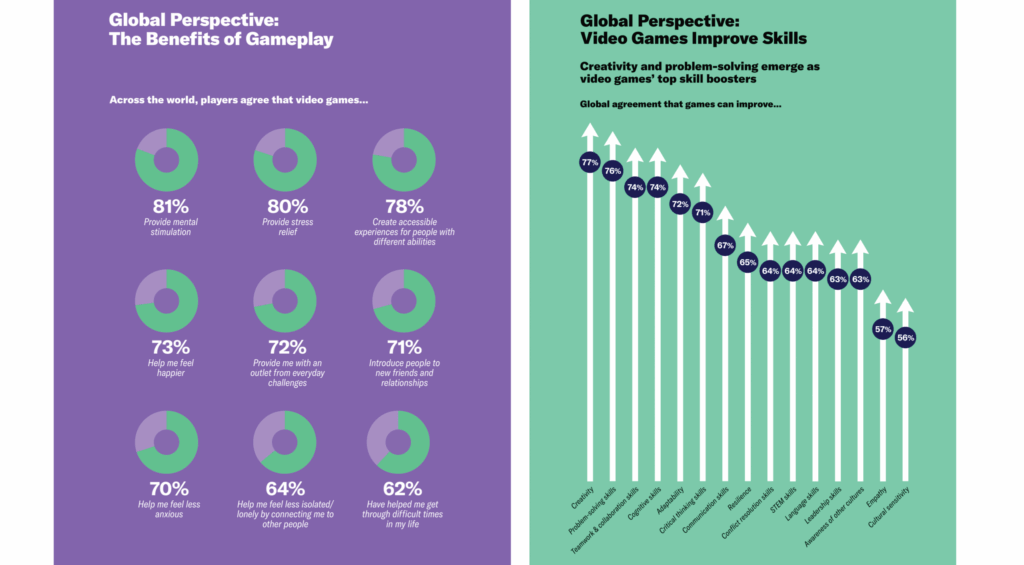Global Report: Video Games Transcend Entertainment and Affect Positive Change in Players’ Lives
Video Games Europe, in partnership with video game trade associations in Australia, Canada, South Korea and the US, today released the 2025 Global Power of Play report. The report reveals the universal social and emotional benefits of video games, confirmed by both peer-reviewed academic research and a survey of 24,216 active (weekly) players (age 16+) in 21 countries: Australia, Brazil, Canada, China, Egypt, France, Germany, India, Italy, Japan, Mexico, Nigeria, Poland, Saudi Arabia, South Africa, South Korea, Spain, Sweden, the United Arab Emirates (UAE), the United Kingdom and the United States of America (U.S).
Key findings:
- The top three reasons for playing video games are to have fun (66% - 67% for Europeans), for stress relief (58% - 55% for Europeans) and to keep their mind sharp (42% - 45% for Europeans).
- 77% of players say video games help them feel less stressed (72% for Europeans), 70% report reduced anxiety and 64% credit video games with easing loneliness (56% for Europeans) by connecting them to others.
- Half of all players worldwide say p laying video games has directly bolstered their professional education through technical or behavioral skills, and 43% report that games have influenced their career or educational path.
- Players agree that video games help improve creativity (77%), problem-solving (76%) and teamwork and collaboration skills (74%). Adaptability (72%), critical thinking (71%) and communication skills (67%) also rank high. In Europe, the top three skills players believe are improved by playing video games are creativity (73%), problem solving (72%) and adaptability (70%).


